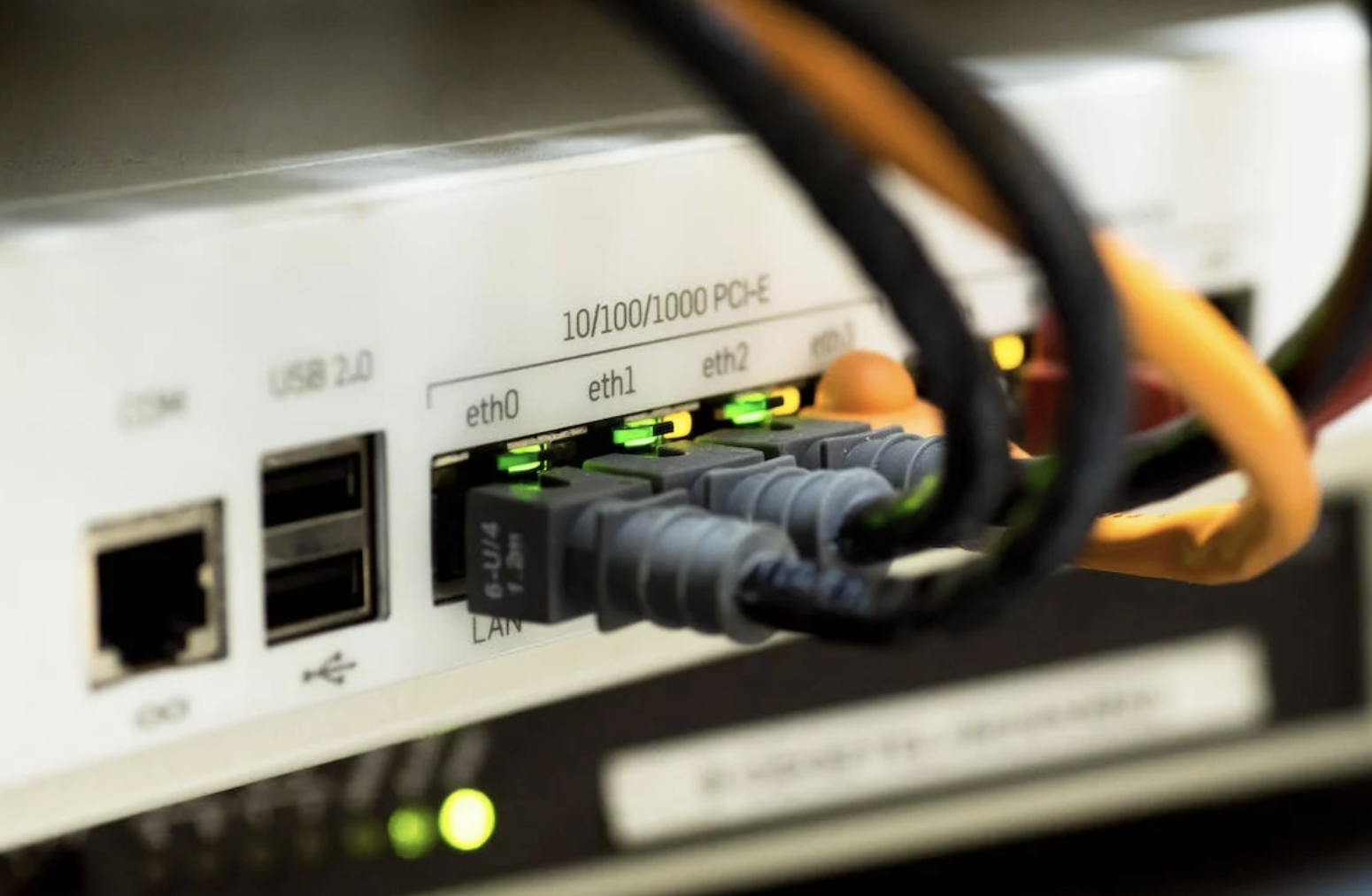 https://www.teamipro.com/wp-content/uploads/2025/01/Screenshot-2025-01-15-at-1.29.11 AM.png
758
1182
Pat Anunciacion
https://www.teamipro.com/wp-content/uploads/2023/07/IPRO.png
Pat Anunciacion2024-12-23 09:00:352025-01-14 17:32:23Revolutionizing Modern Communication: The Role of a vCIO and Managed IT Services in Dallas
https://www.teamipro.com/wp-content/uploads/2025/01/Screenshot-2025-01-15-at-1.29.11 AM.png
758
1182
Pat Anunciacion
https://www.teamipro.com/wp-content/uploads/2023/07/IPRO.png
Pat Anunciacion2024-12-23 09:00:352025-01-14 17:32:23Revolutionizing Modern Communication: The Role of a vCIO and Managed IT Services in DallasThe Security Challenges in the Cloud Era
As organizations increasingly migrate their operations to the cloud, they become susceptible to a range of security threats and vulnerabilities. These challenges include:
Data Breaches
The cloud is a prime target for cybercriminals seeking to exploit vulnerabilities and gain unauthorized access to sensitive data. Data breaches can result in severe financial and reputational damage to organizations.
Data breaches can occur in various forms, such as unauthorized access to databases, insecure application programming interfaces (APIs), or phishing attacks targeting employees who have access to cloud-based systems. These breaches may lead to the exposure of sensitive customer information, financial data, and intellectual property.
Insider Threats
Insider threats are a critical concern for organizations in the cloud era. Employees, whether intentionally or unintentionally, can pose significant security risks. Malicious insiders may abuse their privileges to compromise data security, while negligent employees may inadvertently expose sensitive information.
Managing and monitoring the activities of a distributed workforce can be especially challenging. Organizations need to strike a balance between providing employees with the access they need to do their jobs and protecting against potential threats from within.
Distributed Workforce
The rise of remote work has significantly expanded the attack surface for cyber threats. Employees accessing cloud-based resources from various locations and devices have created new avenues for cybercriminals to exploit.
Securing remote work environments, remote access, and endpoints has become paramount. It requires a comprehensive approach to ensure that sensitive data remains protected, regardless of where employees are working.
Complex Regulatory Landscape
Data protection regulations have proliferated globally, with frameworks like the General Data Protection Regulation (GDPR) in Europe and the California Consumer Privacy Act (CCPA) in the United States imposing stringent requirements on how organizations handle and protect data.
Navigating this complex regulatory landscape while operating in the cloud era can be challenging. Organizations need to understand and comply with the relevant data protection laws, ensure data privacy, and report data breaches as required by law.
Evolving Threat Landscape
The threat landscape in the cloud era is dynamic and continually evolving. Cybercriminals are quick to adapt to new technologies and exploit vulnerabilities in cloud-based systems.
Traditional security measures, while still valuable, may no longer suffice in this rapidly changing environment. Organizations need to employ a mix of traditional and advanced security solutions to protect against emerging threats.
The Role of Managed IT Services in Cybersecurity
In this rapidly evolving and complex cybersecurity landscape, managed IT services have emerged as a critical partner for organizations looking to secure their digital assets effectively. These services offer a wide range of advantages that contribute to a robust and comprehensive security posture.
Expertise and Specialization
Managed IT service providers are experts in their field, specializing in cybersecurity and staying up to date with the latest threats and security measures. They have dedicated teams of professionals with in-depth knowledge of security best practices and the tools necessary to address cybersecurity challenges effectively.
Proactive Monitoring
One of the primary functions of managed IT services is 24/7 monitoring of an organization’s IT environment. This proactive approach allows them to detect and mitigate potential security threats before they escalate into major incidents.
Proactive monitoring involves the continuous assessment of an organization’s systems and network traffic. By identifying anomalies or suspicious activities, managed IT service providers can take swift action to prevent security breaches or data loss.
Threat Intelligence
Managed IT service providers have access to a wealth of threat intelligence data, which enables them to anticipate and respond to emerging threats promptly. This intelligence comes from a variety of sources, including global threat databases, dark web monitoring, and real-time analysis of security events.
Armed with this threat intelligence, managed IT service providers can better understand the evolving tactics and techniques of cybercriminals. They can tailor their security strategies to address specific threats, improving an organization’s overall security posture.
Customized Security Solutions
Every organization has unique IT requirements and risk profiles. Managed IT service providers understand the importance of tailoring security solutions to fit the specific needs of each client.
They conduct thorough assessments of an organization’s IT infrastructure, identifying vulnerabilities and potential risks. Based on this analysis, they can develop and implement customized security solutions that address the organization’s specific security concerns.
Customization extends to the selection and configuration of security tools and technologies. Managed IT service providers can integrate a range of security solutions, including firewalls, intrusion detection systems, antivirus software, and encryption, to create a layered defense strategy that protects against various threats.
Cost-Effective
Engaging a managed IT service provider is often more cost-effective than maintaining an in-house IT security team. The expense of hiring, training, and retaining specialized staff can be significant. Managed IT services provide access to top-tier security expertise without the overhead costs associated with an internal security team.
Moreover, the cost of cybersecurity incidents, including data breaches and downtime, can be substantial. Managed IT services help organizations avoid these costs by proactively securing their digital infrastructure.
Disaster Recovery
Managed IT services include disaster recovery planning and services. In the event of a security breach, data loss, or system failure, they can swiftly restore operations, minimizing downtime and its associated costs.
Disaster recovery plans are tailored to an organization’s specific needs and include measures for data backup, system redundancy, and rapid recovery. Having a well-defined disaster recovery plan in place ensures business continuity in the face of unexpected security incidents.
Compliance Management
Compliance with data protection regulations is a non-negotiable aspect of doing business in the cloud era. Managed IT service providers help organizations navigate the complex landscape of regulatory requirements, ensuring that they meet all necessary compliance standards.
Compliance management involves understanding the specific obligations imposed by relevant data protection laws, creating policies and procedures that align with those requirements, and conducting audits and assessments to verify compliance. Managed IT service providers play a critical role in guiding organizations through this process and ensuring that they remain compliant.
Key Components of Managed IT Services for Cybersecurity
Managed IT services encompass various components designed to protect organizations in the cloud era. These components address specific aspects of cybersecurity and work together to create a robust defense strategy.
Endpoint Security
Endpoints, such as laptops, desktops, and mobile devices, are vulnerable entry points for cyber threats. Managed IT services implement robust endpoint security measures to protect these devices from potential attacks.
Endpoint security solutions typically include antivirus software, firewalls, intrusion detection systems, and endpoint detection and response (EDR) tools. These technologies help identify and mitigate threats at the device level, preventing malware infections, data breaches, and unauthorized access.
Endpoint security extends to the management of device configurations, patch management, and the enforcement of security policies. Managed IT service providers ensure that all devices are up to date, properly configured, and compliant with security standards.
Cloud Security
Securing cloud-based resources and data storage is paramount in the cloud era. Managed IT service providers offer cloud security solutions that protect data stored in the cloud and ensure that cloud-based applications and services remain secure.
Cloud security solutions encompass a range of features, including data encryption, access control management, and real-time monitoring for unusual activity within cloud environments. These solutions help organizations maintain the confidentiality, integrity, and availability of their data in the cloud.
Furthermore, managed IT service providers assist organizations in configuring and managing cloud security settings. They can set up identity and access management (IAM) policies, implement multi-factor authentication (MFA), and monitor cloud services for vulnerabilities or unauthorized access.
Network Security
Network security serves as the foundation of an organization’s cybersecurity strategy. Managed IT service providers implement a comprehensive network security approach to safeguard data in transit and at rest.
Key components of network security include firewalls, intrusion detection and prevention systems (IDS/IPS), and virtual private networks (VPNs). Firewalls filter incoming and outgoing network traffic, allowing or blocking data packets based on a set of security rules. IDS/IPS tools monitor network traffic for suspicious activity and respond to potential threats in real-time.
Additionally, managed IT service providers configure and manage security policies for network devices, such as routers and switches. They ensure that all network traffic is encrypted and that access to sensitive data and systems is restricted to authorized users.
Incident Response
In the unfortunate event of a security breach, rapid incident response is crucial. Managed IT service providers are well-prepared to respond swiftly to security incidents, following predefined incident response plans.
Incident response involves identifying and containing the breach, mitigating the impact, and preventing future breaches. Managed IT service providers collaborate with organizations to establish an incident response strategy that outlines roles and responsibilities, communication procedures, and steps for reporting and containing incidents.
A swift and effective incident response can minimize damage and downtime, protect data, and enhance an organization’s reputation. Managed IT service providers work to continuously improve incident response plans by analyzing past incidents and applying lessons learned.
Security Awareness Training
Employee education is a critical element of cybersecurity. Managed IT service providers often offer security awareness training programs to help staff recognize and respond to potential threats effectively.
Security awareness training covers a range of topics, including phishing awareness, password best practices, safe internet browsing, and the identification of social engineering tactics. It aims to create a security-conscious organizational culture where employees understand their role in maintaining data security.
Managed IT service providers to design and deliver training materials, conduct awareness campaigns, and assess the effectiveness of training through simulated phishing exercises and knowledge assessments. These efforts help organizations build a human firewall against cyber threats.
The Future of Managed IT Services in Cybersecurity
As the digital landscape continues to evolve, the role of managed IT services in cybersecurity is set to expand even further. The future holds several key trends and developments that will shape the landscape of cybersecurity in the cloud era.
AI and Machine Learning Integration
Managed IT service providers will increasingly leverage artificial intelligence (AI) and machine learning (ML) to enhance threat detection and response. These technologies can identify patterns and anomalies that may be too subtle for human analysts to notice.
AI and ML tools can analyze vast amounts of data in real-time, identify unusual behavior, and make decisions based on historical data and predefined rules. This enables organizations to detect and respond to threats more swiftly and accurately.
Predictive analytics, driven by AI and ML, can also help organizations anticipate potential security risks and vulnerabilities. By identifying emerging threats, organizations can proactively implement countermeasures to protect their digital assets.
Managed Detection and Response (MDR)
MDR services will gain prominence as a subset of managed IT services, focusing specifically on threat detection and response. These services provide continuous monitoring and rapid threat containment.
MDR services go beyond traditional security measures by offering real-time threat detection, analysis, and response. They involve security analysts who monitor network and endpoint activity, analyze data for potential threats, and respond to incidents with precision.
Managed IT service providers will offer MDR services to organizations, providing a higher level of security against advanced threats. This will include 24/7 monitoring, threat hunting, and incident response capabilities.
IoT Security
With the proliferation of Internet of Things (IoT) devices, managing their security becomes paramount. Managed IT service providers will incorporate IoT security solutions to protect organizations from emerging threats related to connected devices.
IoT security involves securing a wide range of devices, including smart appliances, industrial sensors, and medical devices. These devices often have limited security capabilities, making them attractive targets for cybercriminals.
Managed IT service providers will help organizations assess the security of their IoT devices, implement security measures such as device authentication and encryption, and monitor IoT network traffic for unusual behavior. This proactive approach will help organizations protect their IoT ecosystems from cyber threats.
Supply Chain Security
The global supply chain is increasingly interconnected digitally. Managed IT service providers will play a crucial role in securing the supply chain and protecting against cyberattacks and data breaches in this complex ecosystem.
Supply chain security involves assessing the security of suppliers and partners, ensuring that they meet security standards, and monitoring the flow of data and goods within the supply chain. Organizations need to safeguard sensitive information and intellectual property throughout the supply chain process.
Managed IT service providers will assist organizations in conducting supply chain security assessments, implementing secure data exchange mechanisms, and establishing incident response protocols for supply chain-related security incidents.
The role of IT Managed Services and NOC service providers becomes increasingly evident as businesses navigate the complex waters of cloud cybersecurity. The IPRO has helped businesses of all sizes for nearly 20 years with our white-labeled NOC services that are tailored for each company while meeting relevant cybersecurity regulatory standards. They also provide outsourced helpdesk services with VoIP, eFax, IVR, and other modern-day technologies.
Contact them and benefit from their managed NOC services for MSPs.
 https://www.teamipro.com/wp-content/uploads/2025/01/Screenshot-2025-01-15-at-1.29.11 AM.png
758
1182
Pat Anunciacion
https://www.teamipro.com/wp-content/uploads/2023/07/IPRO.png
Pat Anunciacion2024-12-23 09:00:352025-01-14 17:32:23Revolutionizing Modern Communication: The Role of a vCIO and Managed IT Services in Dallas
https://www.teamipro.com/wp-content/uploads/2025/01/Screenshot-2025-01-15-at-1.29.11 AM.png
758
1182
Pat Anunciacion
https://www.teamipro.com/wp-content/uploads/2023/07/IPRO.png
Pat Anunciacion2024-12-23 09:00:352025-01-14 17:32:23Revolutionizing Modern Communication: The Role of a vCIO and Managed IT Services in Dallas
Choosing the Right Managed Service Provider (MSP) for Business Continuity












